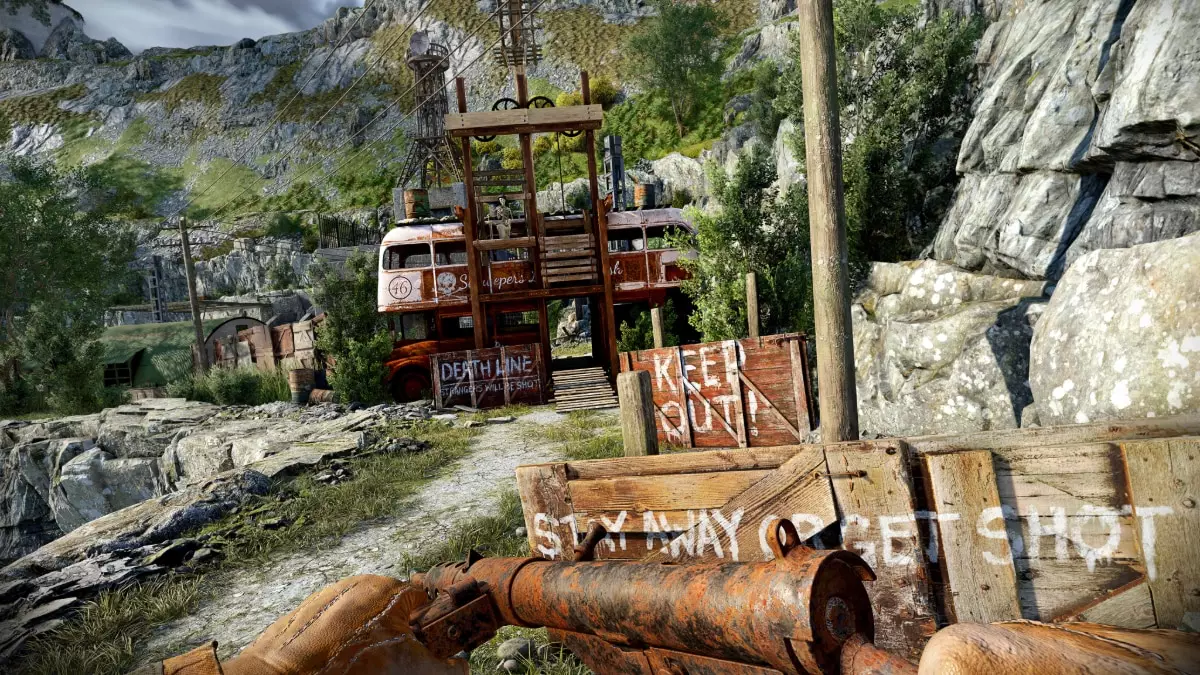Indie games have consistently carved out their niche within the gaming industry, but few have managed to capture the spotlight as effectively as Rebellion Developments’ Atomfall. Released recently across multiple platforms, including PC, PlayStation, and Xbox, this action-survival game has not only attracted an impressive two million players but also redefined how new intellectual properties (IPs) can engage with a broader audience. At the heart of this unprecedented success lies a savvy launch strategy that smartly utilized Xbox Game Pass, a subscription service that offers players an immediate taste of new titles. When Rebellion CEO Jason Kingsley labeled the launch a “huge success,” it wasn’t just a marketing soundbite but a reflection of a transformative approach in an industry notoriously resistant to innovation.
The inclusion of Atomfall in the Game Pass library has proven revolutionary. It shatters the traditional barriers that often restrict new titles, particularly from smaller studios, by providing instant access to a vast player base. The fact that players could sample Atomfall risk-free encouraged many to dive into this fresh offering without the apprehension that often accompanies new purchases. This way, any hesitance about forking over cash for an unknown title was alleviated, and the impact was immediate and profound. Players who enjoyed the game became organic advocates, spreading the word via social media—a phenomenon Kingsley himself noted in his comments emphasizing the word-of-mouth power that Game Pass has afforded them.
Counting Players vs. Counting Sales: A New Metric of Success
While it’s tempting to view the two million players registered as a hallmark of monumental success, one must tread carefully. These numbers, as Kingsley pointed out, include Game Pass subscribers accessing the game at no cost. Thus, the figures should elicit both enthusiasm and skepticism. However, Kingsley assured us that sales exceeded the studio’s original expectations, which paints a brighter portrait than mere numbers alone could suggest. The security offered by Game Pass, with its guaranteed monetary return even amid the risk of lowered sales, has provided Rebellion a new form of stability that is rarely afforded to independent studios.
Yet, therein lies a crucial point of contention for the gaming industry: Are we ready to accept that Game Pass and similar subscription services might redefine what “success” means? When traditional sales are often viewed as the ultimate measure of a game’s worth, the Game Pass model urges us to reconsider that narrative. This shift in perception could open the door for a wider array of innovative concepts and genres to flourish. Many studios may now feel emboldened to explore unconventional themes or gameplay mechanics, freed from the burden of producing sales figures that justify their existence.
The Bigger Picture: Atomfall’s Meaning for Indie Developers
Kingsley’s vision for the future of Atomfall suggests a promising path forward—potential sequels may soon be on the horizon. This desire to expand on a successful property is not just indicative of Rebellion’s aspirations but serves as a harbinger of what lies ahead for independent developers operating under the Game Pass umbrella. If studios can leverage this model effectively, we may witness the birth of uncharted territories, opening up avenues for genres and gameplay styles that have thus far been relegated to niche corners of gaming culture.
As Atomfall carves its place in the market, it invites not only accolades but challenging discussions about the nature of innovation in gaming. Can we allow ourselves to embrace a format that doesn’t rely solely on traditional sales metrics? Or will we cling to archaic views that limit the potential of groundbreaking concepts simply due to their perceived profitability? Rebellion’s achievements remind us that success can manifest in myriad forms, pushing against the rigid frameworks we’ve come to accept as the norm.
In many ways, Rebellion’s Atomfall isn’t just a game—it’s a cultural marker, a signpost indicating that indie gaming can thrive amidst adversity. It challenges industry preconceptions and, hopefully, encourages a new generation of developers to envision the impossible. Atomfall isn’t merely a survival game set in a post-apocalyptic England; it’s a testament to the untapped potential that exists when creativity marries opportunity, making waves that will be felt long after the game has faded from immediate attention.


Leave a Reply